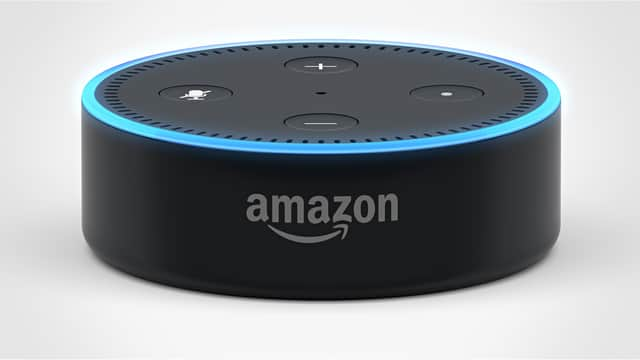Kids as young as 5 are now asking Alexa for help with their homework on a regular basis


Children are using more connected devices than ever before such as smart speakers, according to a recent study by Ofcom.
The proportion of those aged five to 15 who use voice-activated speakers has jumped from 15 to 27 per cent in a year, while radio use has fallen from 26 to 22 per cent.
Advertisement
Hide AdAdvertisement
Hide AdResearch by the media regulator found children were shunning the radio in favour of asking digital assistants to tell them jokes and ask for help with their homework. Children’s viewing habits are also changing radically, with almost twice as many children watching streaming content than they did five years ago.
The Greta Effect
Ofcom conducted over 3,500 interviews with children and parents nationwide to discover how five to 15 year olds are using the internet and traditional media.
The study uncovered three notable online trends over the last year including the rise of the "Greta effect", the "vlogger next door" and an increase in girl gamers.
Almost a fifth (18 per cent, up from 12 per cent in a year) of 12 to 15s use social media to express support for causes and organisations – potentially environmental, political or charitable – by sharing or commenting on posts.
Advertisement
Hide AdAdvertisement
Hide AdWhile high-profile YouTube stars remain popular, children are now increasingly drawn to influencers like them. These people, known as "micro" or "nano" influencers, often have fewer followers.
Children described these influencers as more relatable and directly engaged with their followers, while others described being able to imitate their content on their own social media channels.
Increase in 'girl gamers'
Almost half (48 per cent) of girls aged five to 15 now play games online – a big rise from 39 per cent in 2018. The proportion of boy gamers is unchanged at 71 per cent, but boys spend twice as long playing online each week as girls.
The report also stated that parents are increasingly concerned about their child seeing content which might encourage them to harm themselves. This coincided with a growing number of children reporting seeing hateful content online, with more than half (51 per cent) saying they had viewed such material last year compared with just 34 per cent in 2016.
Advertisement
Hide AdAdvertisement
Hide AdYih-Choung Teh, Strategy and Research Group Director at Ofcom, said, “Today’s children have never known life without the internet, but two million parents now feel the internet causes them more harm than good.
“So it’s encouraging that parents, carers and teachers are now having more conversations than ever before with children about online safety. Education and stronger regulation will also help children to embrace their digital independence, while protecting them from the risks.”